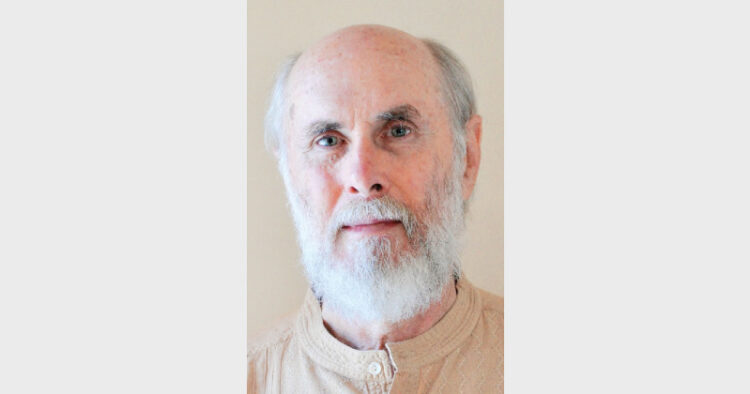 Recent protests against banning Jallikattu, are now beginning to take a stand that bodes well for the future of the culture and its preservation
Recent protests against banning Jallikattu, are now beginning to take a stand that bodes well for the future of the culture and its preservation
David Frawley
There is a new cultural war going on in the world today, in which India with its ancient traditions is one of the prime
targets. In the colonial period of India and under Islamic rule, this battle was easy to see by the actual armies involved. Today it follows a covert role through media influences, academia, and NGOs as well as the usual missionary organisations. Sometimes it is led by Indians who have taken on certain values that make them suspicious of their own culture.
This cultural war aims at promoting the current western culture in its political, economic and religious forms, which requires marginalising non- western cultures. In the colonial era, the traditional cultures of Asia, Africa and America were demeaned at a religious level as heathen and superstitious. Today they are deemed regressive at a social level by the very countries that not long ago used to actively oppress them. In other words, the same denigration has shifted from military control to cultural subordination.
Throughout the world, traditional cultures with their languages and customs are under siege and disappearing. The marginalisation of traditional cultures, extending to their outright genocide, was a hallmark of the colonial era, but has continued in the post-colonial era, in spite of the political independence of the countries like India where traditional cultures survived the colonial onslaught.
Hindu Dharma represents the oldest and largest cultural complex in the world –and one that follows a distinct ethos apart from western culture, whether in its left, right, consumerist, Christian or Islamic forms. Hindu Dharma follows a different set of dharmic values rooted in life and
higher consciousness. It has a vast, variegated and colourful set of festivals and customs, highlighting the connection of the people with nature, spiritual forces, deities, yogis and gurus.
Western civilisation, we should note, has brought many benefits to India in terms of science and technology, which should be appreciated. But western culture is not such a positive force and should not be equated with these. Western culture promotes a consumerist and materialist view of the world that can be very different from the dharmic values of India. It has brought in a sensate culture of drugs, breakdown of the family system, and hedonism, on one side, with aggressive religious conversion, and even religious terrorism as in the case of Islamic Jihad, on the other.
Current Debate on Jallikattu
The current debate on Jallikattu in South India is but one important phase in this ongoing clash of cultures. Jallikattu is a local custom followed mainly in Tamil Nadu mainly as part of the Pongal New Year Festival according to the Hindu
calendar. It involves taming of bulls and various activities that go along with this. Unlike Spanish bull fighting the bull in not actually killed and it is not a kind of “bull-fighting” as the western media likes to describe it.
In recent years, there has been a call to ban the sport, as it can be harmful to the animals. Certainly, like many active sports Jallikattu does require care and regulation. There may be instances in which Jallikattu can be reformed to bring about a better treatment of the
animals and prevent possible abuse. But the call for a complete ban is bigoted and hypocritical, and a special affront against Hindus.
This call for the ban is coming from PETA, which is a worldwide organisation. PETA claims not to consider religion in its campaigns. Yet its campaign against Jallikattu is clearly targeting practices that are part of the Hindu tradition. Meanwhile PETA does not have
similar campaigns against the massive animal slaughter that occurs along with Islamic festivals like EID, or many other western religious events in which animals are killed or eaten. To target India “bull-taming” as a prime event showing cruelty to animals is certainly exaggerated.
Unfortunately, India’s Supreme Court has gone along with the call to ban the ancient custom. This is not
surprising as the court has along history of interfering with and trying to regulate Hindu religious practices, while uncritically accepting Islamic and Christian practices.
Such sports as Jallikattu are part of older agrarian cultures, upholding their communities and values. They reflect seasonal observances, harvests and local customs on many levels. They are key components of the traditional
identity and way of life of the people connected to the rhythms of nature, such as we find throughout India.
Jallikattu has benefits in several ways. It is part of practices for developing and breeding stronger and healthier bulls, an important consideration in the agrarian economy. It is also a traditional sport that engages the youth in developing strength and courage in their efforts to tame the bulls.
Jallikattu can to some degree be compared to the role of sports in modern society in promoting fitness. One is also reminded of rodeos in the western US, Canada and Mexico that feature taming bulls and horses. Yet Jallikattu is an ancient agrarian sport that can be found depicted in seals of the Harappan or Saraswati culture going back five thousand years ago, so its cultural relevance is enormous.
Such traditional cultural practices are arguably healthier and more humane than current western culture with its heavy meat eating, junk food, pursuit of entertainment, and sedentary living. They also support the local economy and help keep it self-sufficient, keeping agrarian communities intact and not migrating to the cities.
Hindus Should Stand Up against Cultural Intimidation
In seeking to ban such festivals, we can easily discern a hidden agenda to undermine traditional cultures and their non-western religions. While calls for better treatment of animals are always worthy of consideration, if they are sincere, banning the event altogether is violence against the people and their culture.
The campaign against Jallikattu is part of campaigns against Hindu culture that have targeted temple worship and other festivals and
pilgrimages, of which Hindu dharma has a great diversity. Hindu festivals are the largest as well as oldest in the world, such as the Kumbha Mela where tens of millions may attend on a single day. Undermining such events is high on the agenda of those who are against Hindu Dharma and want to dominate India at political, cultural or economic levels.
Hindu festivals and pilgrimages are prominent in every part of India. Yet today in West Bengal, Durga Puja is restricted so as not to offend
non-Hindus. In Kerala, the land where Vedic culture was once best preserved, Hindu activists are being murdered by the ruling Communist party.
Today Hindus need to stand up and protest such discrimination against Hindu cultural practices. No other major religion in the world allows
similar outside regulatory efforts, though Hindu dharma is the most tolerant of the major world religions and the least seeking to dominate the world. This cultural clash is bound to continue, if not increase over time, during our new media age. It is important for a Hindu voice to be ready to speak and be heard.
Protests do matter and the youth and people of Tamil Nadu, with their recent protests against banning Jallikattu, are now beginning to take a stand that bodes well for the future of the culture and its preservation. All Hindus should take up similar responses to efforts to control their traditional practices by outside forces.
(The writer, also known as Vamadeva Shastri. He is the founder of American Institute of Vedic Studies and author of many books)













Comments